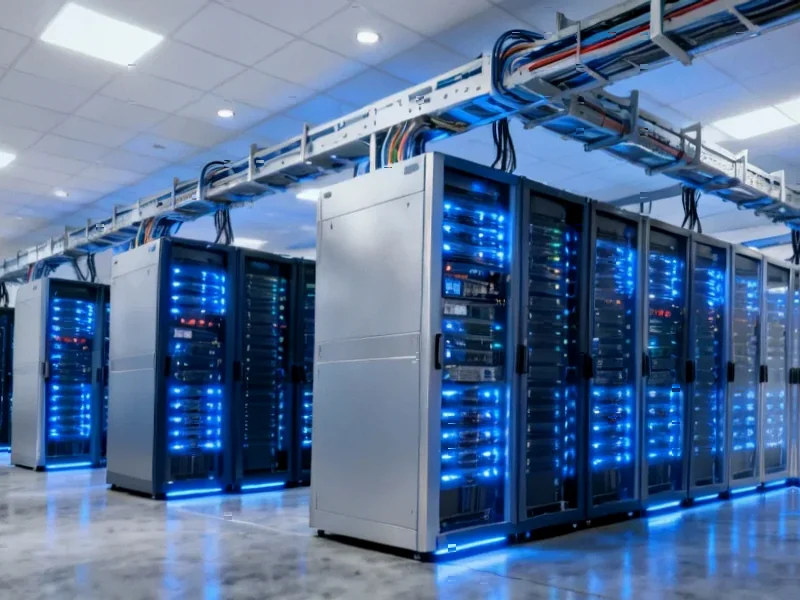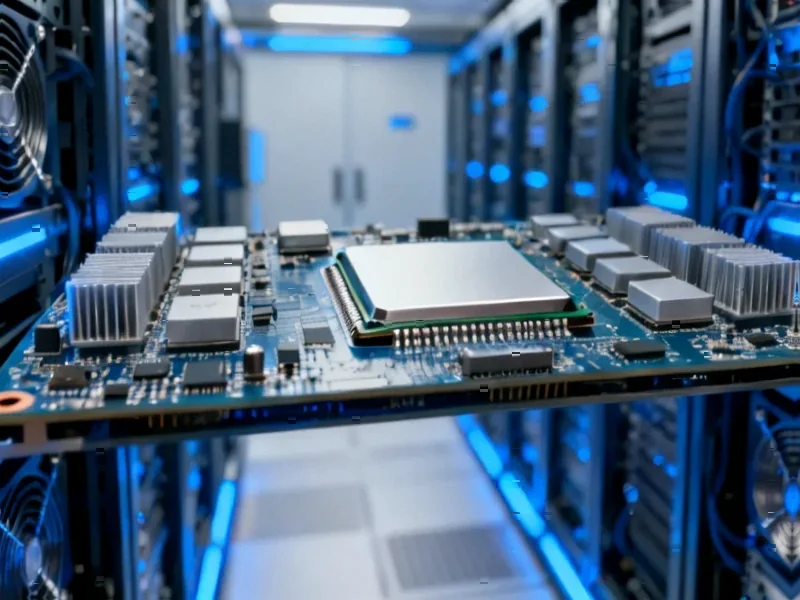According to Financial Times News, Deutsche Bank is exploring ways to hedge its exposure to data centers after extending billions of dollars in debt to the sector to keep up with AI and cloud computing demand. The German lender is considering shorting a basket of AI-related stocks and buying default protection through synthetic risk transfer derivatives. Executives have discussed managing exposure as hyperscalers pour hundreds of billions into AI infrastructure, with total spending estimates reaching $3 trillion through 2030. Deutsche has lent predominantly to businesses servicing Alphabet, Microsoft, and Amazon, with debt secured against long-term contracts. Recent deals include over $1 billion in financing for Sweden’s EcoDataCenter and Canada’s 5C, though the bank doesn’t disclose its total sector exposure.
The massive AI infrastructure bet
Deutsche’s investment banking division has apparently “bet big” on data center financing. And honestly, it makes sense – everyone’s chasing AI deals right now. But here’s the thing: when you’re lending billions to companies building physical infrastructure for an industry that’s evolving at light speed, you’re taking on some serious risk. These data centers aren’t cheap, and the technology inside them becomes obsolete faster than last year’s smartphone.
The bank claims it’s being smart about this – lending to businesses with long-term contracts from the big hyperscalers. Basically, they’re betting that Amazon, Microsoft, and Google will keep paying their bills even if the AI hype cools. But let’s be real – we’ve seen this movie before. The dotcom bubble taught us that when everyone piles into the next big thing, someone’s left holding the bag when music stops.
Why hedging is harder than it looks
Now comes the tricky part. Deutsche wants to hedge its exposure, but that’s easier said than done. Shorting AI stocks in the middle of an AI boom? That’s like trying to sell umbrellas during a drought – it’s going to be expensive as hell. And those synthetic risk transfer deals require diversified loan pools and willing investors who aren’t going to charge through the nose for protection.
Think about it – if you’re an investor being asked to insure against defaults in what might be a bubble market, what would you do? You’d demand sky-high premiums. So Deutsche faces this classic Wall Street dilemma: the more protection they need, the more expensive it becomes to get it.
Is this another tech bubble?
The skeptics have a point here. We’re talking about billions flowing into an industry where the business models are still being proven. Remember when everyone thought webvan was the future of grocery shopping? The rapid technology depreciation alone should give lenders pause – today’s cutting-edge AI chip could be tomorrow’s paperweight.
But Deutsche’s own analysts pushed back against bubble talk in a recent report, using AI to analyze mentions of “AI bubble” in publications. Their conclusion was basically that the only bubble that’s burst is the bubble in bubble-talk. Clever, but does analyzing media mentions really tell us anything about fundamental valuations?
The European infrastructure gold rush
Meanwhile, Europe’s expecting a wave of dealmaking and consolidation in digital infrastructure. Companies are racing to acquire and develop sites at breakneck speed. Deutsche’s own asset management arm DWS is reportedly preparing to sell its data center business for around €2 billion. Talk about timing – if you’re going to cash out, doing it during peak hype might not be the worst strategy.
So what’s the real story here? It feels like Deutsche made a calculated bet on AI infrastructure, the bet got bigger than they expected, and now they’re looking for the emergency exits. The question isn’t whether AI is transformative – it clearly is. The question is whether the current infrastructure spending spree makes economic sense. And whether the banks funding it will be left with valuable assets or very expensive server farms when the dust settles.





Your article helped me a lot, is there any more related content? Thanks!